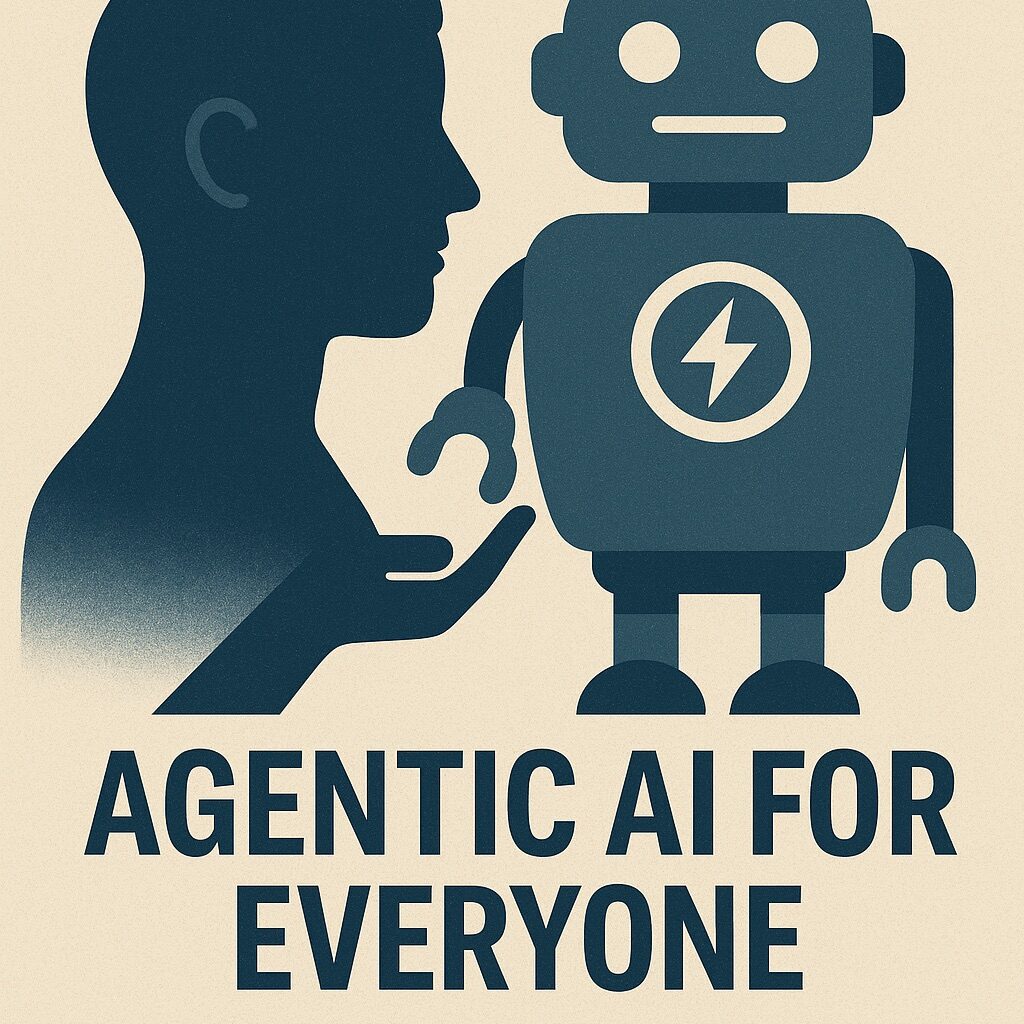Artificial intelligence (AI) has rapidly advanced from simple chatbots to agents capable of acting on a user’s behalf. These personal AI agents, often referred to as agentic AI, are designed to perform tasks autonomously, accessing tools, invoking services, and making decisions based on user preferences. As these systems become more prevalent, they promise to reshape consumer behavior, decision‑making, attention, and productivity while raising profound questions about privacy, autonomy, and the future of the digital marketplace.
What Is an Agentic AI?
Agentic AI refers to software systems that set and pursue goals autonomously with minimal or no direct human supervision. Unlike conventional chatbots that simply respond to user prompts, agentic AI can:
- Chain tasks together: It can break down complex tasks into smaller steps, execute them, and adapt its plan as circumstances change.
- Maintain persistent memory: The agent remembers past interactions to tailor future behaviors and decisions.
- Access multiple tools and platforms: It can manage calendars, send emails, order products, or even negotiate with other agents.
- Operate on behalf of the user: It seeks to meet the user’s goals based on instructions or learned preferences, often anticipating needs.
Deloitte predicts that about 25 % of companies using generative AI will pilot agentic systems by 2025, and around 50 % will do so by 2027deloitte.com. Surveys indicate that nearly a third of global IT leaders are already using agentic AI, and 90 % of non‑technology companies plan to implement these systems soonpragmaticcoders.com.
Consumer Adoption and Changing Behaviors
Consumers Are Ready to Embrace AI Agents
A 2025 Salesforce study revealed that nearly 44 % of U.S. consumers would use an AI agent as a personal assistant and an impressive 70 % of Generation Z expressed interestsalesforce.com. Consumers show comfort with letting agents handle specific tasks:
- 39 % would allow agents to schedule appointmentssalesforce.com.
- 34 % appreciate that agents spare them from repeating informationsalesforce.com.
- 24 % would entrust agents with shopping, and 36 % favor auto‑purchasing of essentialssalesforce.com.
- 70 % would use agents to manage loyalty programs and price‑drop alertssalesforce.com.
Consumers also desire personalization and empathy: surveys report that 67 % would trust human‑like AI and 68 % prefer an agent that feels personalmasterofcode.com.
Rethinking Commerce and Advertising
Personal AI agents will transform how we discover and buy products. Traditional shopping relies on searches, advertisements, and reading reviews. Autonomous agents, however, can process vast catalogues, analyze user preferences, and make purchases without ever showing us search results. Flywheel Digital notes that these agents—such as Amazon’s Rufus or voice assistants like Alexa+—could shift consumer behavior away from manual browsing and towards conversation‑based shoppingflywheeldigital.com. This shift means:
- Less reliance on traditional ads: Advertisers will need to ensure their products and descriptions are machine‑readable and optimized for agentic recommendationsflywheeldigital.com.
- New metrics of success: Companies will measure effectiveness by how often an agent recommends their product rather than by clicks or impressionsflywheeldigital.com.
- Greater competition and transparency: Agents will compare prices, evaluate product ratings, and manage loyalty points, turning everyday decisions into auctions in the backgroundinnovation.consumerreports.org.
The Intention Economy
Research from Cambridge University warns of a developing “intention economy.” As agents learn our habits, they can predict what we plan to do next. Advertisers and platforms may start bidding on these intentions before we act, shaping our choices without our knowledgecam.ac.uk. Such a market could sell our future decisions—what we might buy, where we may travel, and potentially even whom we might vote for. The Guardian emphasises the dangers of this trend, noting that data‑hungry systems could manipulate decisions, influencing commerce and democratic processestheguardian.com.
Enhancing Productivity and Decision‑Making
Automation and Efficiency Gains
Agentic AI promises substantial productivity improvements. Real‑world deployments already show significant benefits:
- H&M’s shopping agent boosted conversion rates by 25 % and resolved around 70 % of customer inquiriesaiagentstore.ai.
- Cognizant reports that 20 % of its software code is produced by AI and that the company reallocated 12 000 employees to more strategic rolestimesofindia.indiatimes.com.
- Reclaim AI found that automating scheduling and task allocation can reclaim approximately 395 hours of focus time per person per year, adding 7.6 additional focus hours each week and reducing meetings and overtimereclaim.ai.
- Organisations adopting agentic AI report revenue increases of 3–15 %, sales ROI improvements of 10–20 %, and marketing cost reductions up to 37 %masterofcode.com.
Better Decision‑Making
Agentic systems can ingest real‑time data and reason over extended time horizons to make decisions faster and more accurately. McKinsey describes how these systems act as “AI corporate citizens”, able to assess creditworthiness, adjust pricing, detect fraud, and ensure compliancemckinsey.com. Such networks of autonomous agents can coordinate across functions—marketing, finance, risk management—leading to better decisions and lower unit costs.
However, there are challenges:
- Reliability: Deloitte notes that some agents, like the coding agent Devin, currently achieve only a 14 % success rate on certain tasksdeloitte.com.
- Bias and compliance: McKinsey warns that agents might reproduce or amplify biased data, leading to unfair outcomesmckinsey.com.
- Privacy and autonomy: Coalfire points out risks such as misuse of data, privacy breaches, and erosion of human autonomy, urging adoption of frameworks like the NIST AI Risk Management Framework to mitigate harmcoalfire.com.
The Rise of Agent‑to‑Agent Communication
Multi‑Agent Collaboration
Personal agents will not operate in isolation. Beryl8 proposes three stages of agentic evolution:
- Specialist agents handle specific tasks such as inventory management or financial analysis.
- Orchestrator agents coordinate multiple specialists to complete broader objectives, reducing error and improving reliabilityberyl8.com.
- Cross‑organizational agent‑to‑agent collaboration allows a customer’s agent to negotiate directly with a business agent. For example, when renting a car, the customer’s agent might negotiate the rental price, insurance coverage, and loyalty rewards with the rental company’s agentberyl8.com.
These interactions will accelerate transactions and free consumers from administrative tasks. Consumer Reports emphasises that open A2A protocols are crucial to ensure fair competition and prevent vendor lock‑in; they enable agents to make hyper‑speed transactions, compare offers, and even form collective bargaining unitsinnovation.consumerreports.org.
A2A Standards and Infrastructure
Google’s Agent2Agent protocol seeks to standardize communication among agents and has been adopted by the Linux Foundation to ensure vendor‑neutral interoperabilitylinuxfoundation.org. An arXiv paper highlights that A2A communication requires new addressing and messaging protocols for negotiation, cooperation, and notificationsarxiv.org. Current implementations rely on HTTP, but there are concerns about spam, abuse, or hidden biases in messagesarxiv.org.
Researchers are experimenting with new protocols:
- Model Context Protocol (MCP): Introduced by Anthropic, MCP enables models to share context across services, acting like a “USB‑C port for AI”medium.com.
- GibberLink: A proof‑of‑concept that uses high‑frequency audio signals to allow two chatbots to communicate with reduced latency, featuring error‑correction techniquesmedium.com.
These innovations could reduce delays and energy consumption, but they also raise new challenges in debugging and security.
Governance, Trust, and Ethical Considerations
Aligning Agents with Human Values
As AI agents begin to make decisions on our behalf, governance becomes critical. McKinsey argues that AI agents should be treated as corporate citizens: their objectives need to be transparent, performance must be monitored, and accountability frameworks must be establishedmckinsey.com. Without oversight, autonomous systems could make harmful choices or perpetuate inequities.
Coalfire recommends using formal frameworks like the NIST AI Risk Management Framework to manage risks related to privacy, security, bias, and misusecoalfire.com. Transparency is essential, especially when agents infer intentions or personal data to steer behavior.
Safeguarding Privacy and Autonomy
Personal agents require deep access to calendars, email, purchasing history, and even voice or location data. While this enables convenient personalization, it also poses significant privacy risks. Cambridge researchers warn that our motivations could become commodities in an intention economycam.ac.uk. This could erode user autonomy if decisions are influenced or sold without explicit consent. Regulatory frameworks and enforcement will be needed to ensure that agents act in users’ best interests.
Conclusion: A New Autonomous Internet?
Personal AI agents are poised to reshape the digital landscape. As they handle ever more complex tasks—scheduling appointments, making purchases, optimizing financial portfolios, or negotiating with other agents—the internet is becoming an autonomous marketplace. The potential benefits are enormous: saved time, increased productivity, better decision‑making, and more personalized experiences. Yet these gains come with risks: manipulation through the intention economy, privacy erosion, potential biases, and the need for robust ethical governance.
For agentic AI to benefit “everyone,” a multi‑stakeholder approach is essential. Developers must build agents with transparency and accountability. Companies should adopt open standards and interoperable protocols to prevent monopolies. Policymakers need to craft regulations protecting privacy and autonomy. Ultimately, the promise of agentic AI will only be realised if these systems serve human goals—and do not simply turn our decisions into products to be bought and sold.









